Resident Spotlight
Resident Spotlight
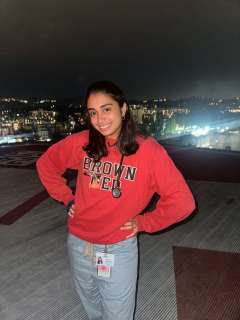
Amita Sastry, MD
What made you want to train at UCLA?
My first experience at UCLA was during my visiting sub-internship as an MS4, and I could immediately see what makes this place so special. I felt so welcomed, supported, and encouraged by all of the residents and faculty I encountered. The dedication to providing excellent, compassionate care to our patients was on another level and inspired me to be better every single day. I still feel so lucky to be training alongside brilliant people who have quickly become some of my best friends and strongest support system. The opportunity to practice at multiple sites and get a wide variety of clinical experience across different levels of acuity and environments is an added bonus!
What part of your training has been the most meaningful, so far?
Meeting and connecting with people from all walks of life. I've learned so much from my patients, their families, my co-residents, senior residents, and attendings... I look forward to every day because I get to work with such an amazing group of people.
What projects are you working on?
I have a few different interests: currently working on a project looking at the impact of maternal COVID on neonatal outcomes, as well as a QI project to implement alternatives to XR confirmation of NG tube placement. A group of co-residents and I are also working on creating a new set of inpatient electives to offer peds residents!
What are your plans after residency?
Deciding between NICU or PHM fellowship!
When I’m not in the hospital you can find me…
discovering new coffee shops, working on the NY Times crossword, writing poetry, traveling with my husband, or getting a little too competitive at a game of Taboo with friends... :)
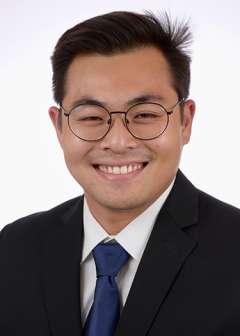
Anthoy Jusuf, MD
Why did you want to train at UCLA?
I knew I wanted to experience everything that pediatrics has to offer. At UCLA we get to exposure to the highest possible medical complexity at Mattel/Ronald Reagan while learning true bread and butter pediatrics at Miller and Santa Monica. We also have the opportunity to work within the county system at Olive View, which I feel is an invaluable experience to have during training.
Our program also does a great job trying to create a balanced schedule. The X+Y format guarantees a golden weekend every 5 weeks which really helps planning fun things to do with friends and family. Having a full week of continuity clinic/outpatient really helps me shift my mindset from inpatient and lets me get in my clinic groove.
Lastly, while on the interview trail, UCLA passed the "vibe check." Now that I'm in my third year I can confirm, they are immaculate!
What part of training has been the most meaningful, so far?
Caring for my patients and their families in the PICU. Some of the most challenging moments in my life, but also incredibly fulfilling!
What projects are you working on? Or what special interests do you have?
I'm involved in a research project looking at the effects of a nutritional pathway made specifically for neonates with congenital heart disease. I also made a slideshow intended to help new residents understand congenital heart disease and have a QI project to see if it's working.
What would you like to do after residency?
I will be doing a chief resident year and then plan to apply to cardiology fellowship!
When I'm not in the hospital you can find me...
Hanging out at home with my fiance and our cats, Dodger Stadium, in the pottery studio, or exploring new restaurants with co-residents!
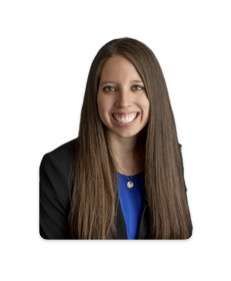
Melanie De La Cruz, MD, MS
What made you want to train at UCLA?
I chose to train at UCLA because of its deep commitment to diversity, equity, and inclusion — values that strongly align with my own. From the moment of my interview, I felt a sense of belonging and warmth that made it clear this was a program where I would be both supported and challenged to grow. I was especially drawn to UCLA’s inclusive environment, where diversity is not only acknowledged but actively celebrated .
This is seen among residents, faculty, and the patient population.
As a first-generation Latina and native Spanish speaker, it was important to me to train at an institution where I could serve a diverse, multicultural community, particularly one with a large Spanish-speaking population. I wanted to be in a setting where I could advocate for patients from underserved backgrounds while also continuing to learn from colleagues who bring a wide range of lived experiences to the table. At UCLA, I found all of that and more.
What part of your training has been the most meaningful, so far?
I’ve truly loved getting to know my co-interns, they are not only incredibly impressive but also deeply kind and collaborative. Each of them brings a unique perspective and set of strengths, and I feel fortunate to be learning alongside such a thoughtful and inspiring group. What has stood out even more is the support I’ve received from the senior residents. Their guidance, patience, and encouragement have made the transition into residency so much smoother than I expected. Whether it’s teaching on the go or simply checking in, they’ve created an environment where I feel safe to ask questions, grow, and challenge myself.
Being surrounded by such a strong and compassionate team has motivated me to keep pushing myself and to become the best intern I can be — not just for my own development, but for the patients and communities we serve.
What projects are you working on?
Currently, I am trying to embrace my role as an intern. I'm hoping to be more involved with quality improvement, specifically in how we can better serve the Spanish speaking population.
What are your plans after residency?
My dream is to work in an underserved primary care clinic.
When I’m not in the hospital you can find me…
When not in the hospital I enjoy hiking, working out, or hanging out with my two dogs (a three legged german shepherd and a dutch shepherd)
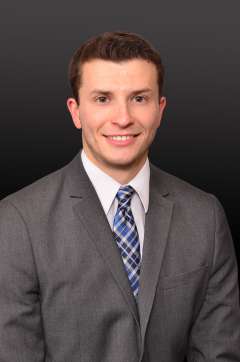
Samuel Rudnick, MD
Why did you want to train at UCLA?
Diversity in clinical training, immense career opportunities, and fantastic union/benefits.
What part of training has been the most meaningful, so far?
Having tremendous support from faculty and co-residents in helping connect me with people in my subspecialty field of interest.
What projects are you working on? Or what special interests do you have?
Retrospective clinical research in sports medicine: identifying risk factors for patellar instability in pediatric patients
QI for pediatric residency: developing a noon conference lecture series on environmental advocacy in pediatric healthcare
Leadership: ongoing development of pediatric resident wellness committee.
What would you like to do after residency?
Chief residency! And then Primary Care Sports Medicine Fellowship
When I'm not in the hospital you can find me...
Finding a local hike or a new restaurant in the neighborhood.
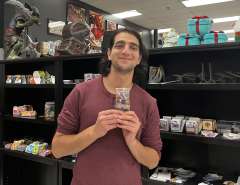
Alla Ahmad, MD
Why did you want to train at UCLA?
I was interested for the ability to practice at multiple different sites from tertiary academic center to community to county hospitals. All these affiliations also gives you a chance to work with different communities and learn how to adapt to different systems which I feel like is vital to having a solid foundation in medicine.
What part of training has been the most meaningful, so far?
Having the chance to connect with my patients and their families and to support them through what is essentially the worst days of their lives. Second is getting to know and spending time at work and outside of work with all of my wonderful colleagues/coresidents!!
What projects are you working on? Or what special interests do you have?
I am working on a QI project about treatment of DKA in the ED and am being onboarded for two research projects about childhood obesity!
What would you like to do after residency?
Still deciding between primary care and fellowship (leaning towards endo atm but still exploring)
When I'm not in the hospital you can find me...
Running by the beach, going out to the movies (50% off movie Tuesday/Wednesday!), playing games at local card shops